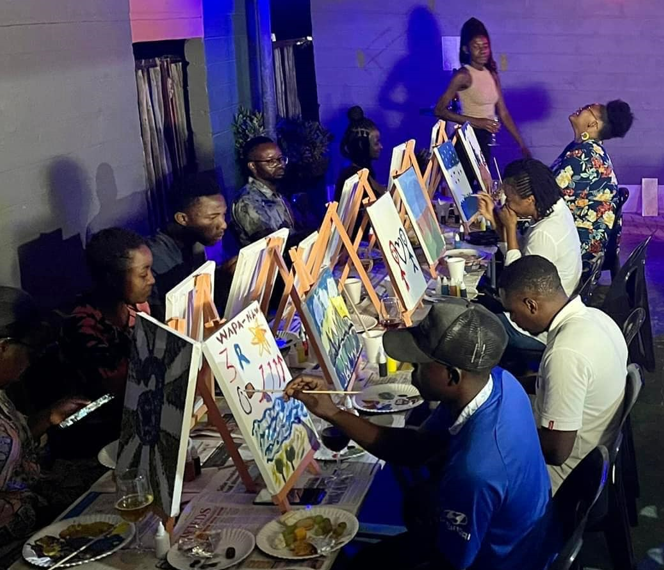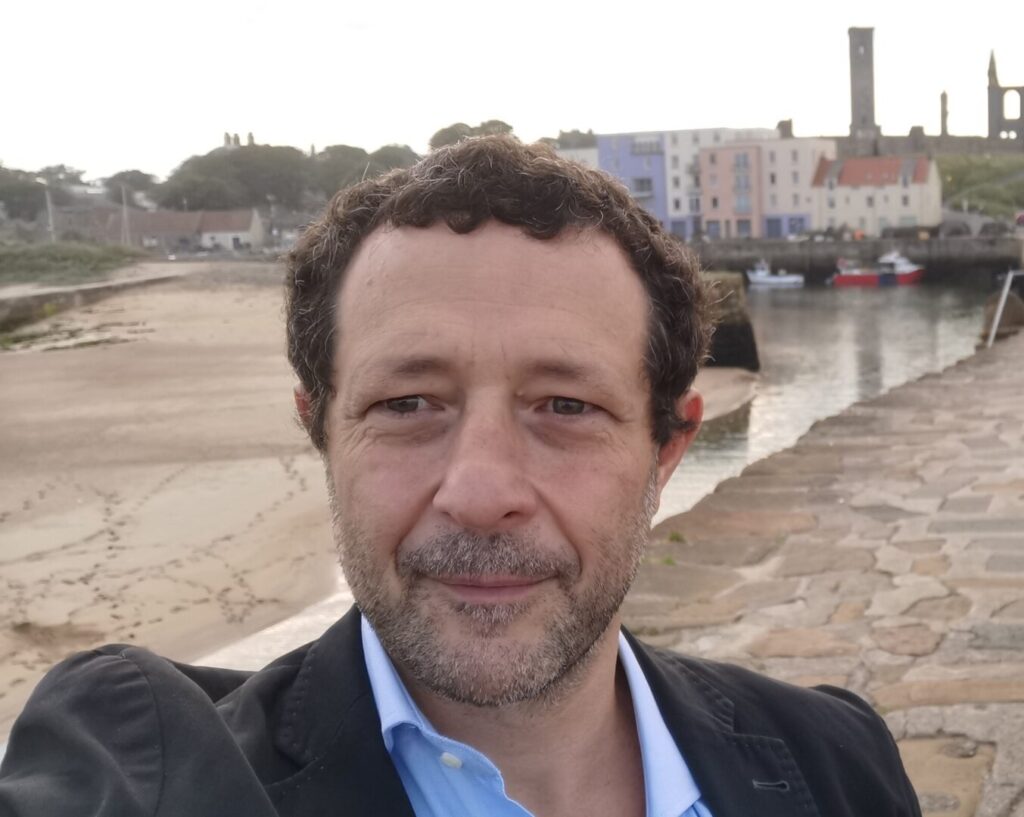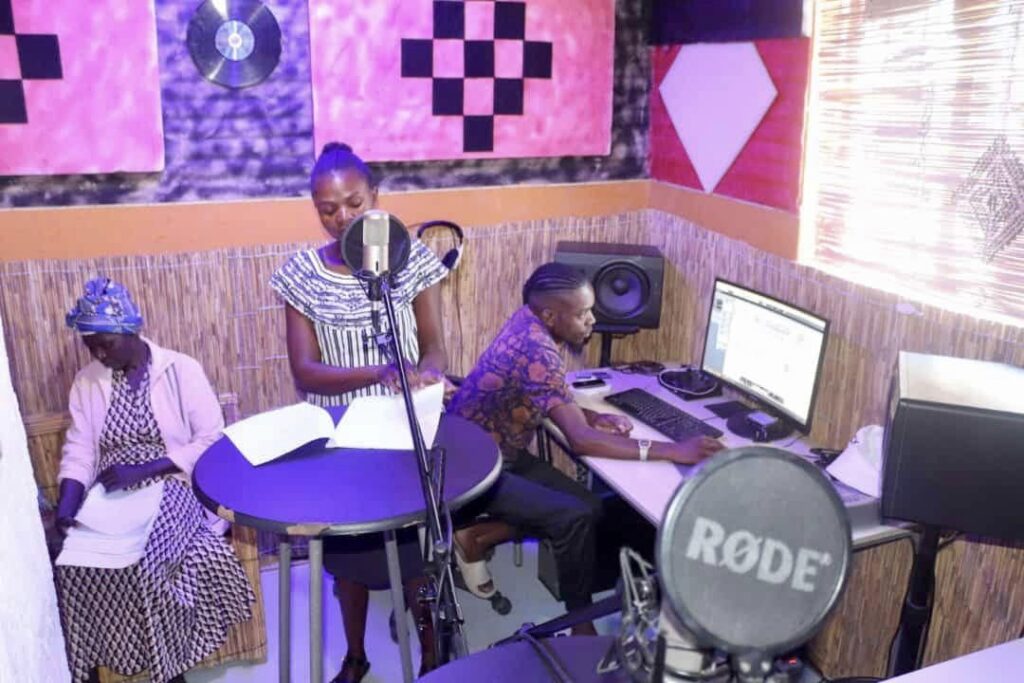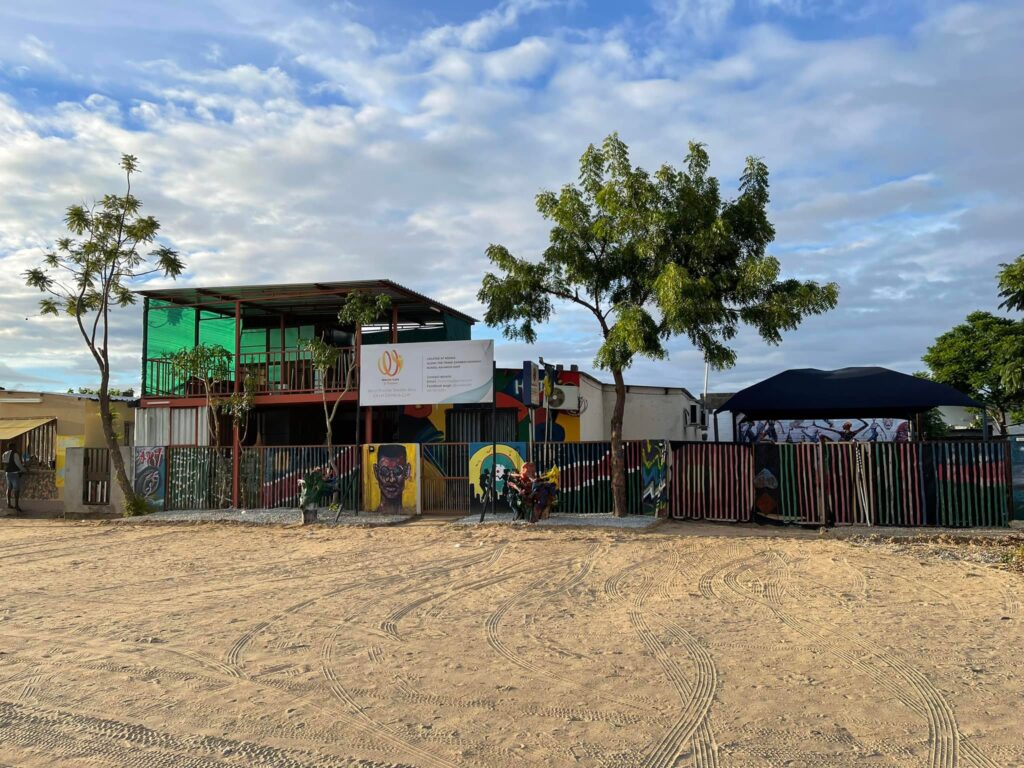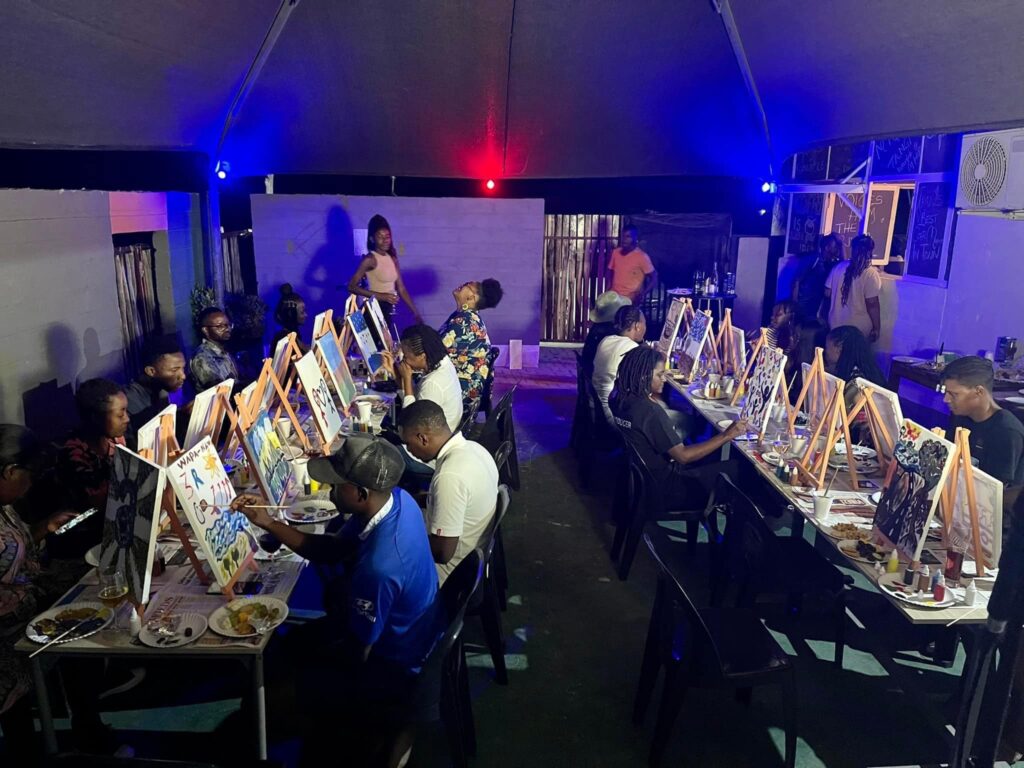Dr Mattia Fumanti, Senior Lecturer in the Department of Social Anthropology, has built his academic career by forming and sustaining long lasting research relationships in the field. Rooted in his research into post-apartheid political transformations, these have evolved over time into sustained partnerships with people, most notably in Namibia.
Building on over twenty years’ ethnographic work in Namibia with local leaders, young people and artists, he is currently leading a co-designed initiative to develop the arts and craft scene in Rundu, a middle-range town in a marginal region of the country, which despite its growth in recent years remains blighted by high level of youth unemployment and underdevelopment. Partnering with Mr Hafeni Katamba, a long-term friend of Dr Fumanti and the founder of HOTA, Home of the Arts, an incubation and acceleration hub for Namibian creatives whose goal is to promote artistic and cultural innovation in the creative industry, this co-designed and co-led initiative aims to strengthen young artists’ innovation skills and business potential. Moreover, by partnering with various ministries and government agencies, the initiative aims through a multi-scalar approach to impact the creative economy as well as transforming vocational education at local and national level.
The power of partnership
Long term personal relationships in the field can add immense strength when being responsive to core partnerships. This strength can be crucial for impact-related work. What may start serendipitously as the coming together of two individuals in the field, may over time develop into a nurturing, meaningful and sustained relationship, engendering a lasting bond whose value exceeds the initial encounter and the demands of academic knowledge production.
A long term personal and research partnership allows for a deep connection to a place, a network, a community, or an industry to be sustained and renewed. By engaging with partners, researchers can seek to mobilise personal connections and resources to respond to their communities’ needs and contribute to generating positive research-informed change. Dr Fumanti’s work in Rundu and Namibia more broadly offers a poignant example of this modus operandi.
Since 1999, through his research in post-apartheid Namibia, Dr Fumanti has been developing and nurturing long lasting relationships with young entrepreneurs, local artists, government officials, NGOs and health practitioners. Starting with his PhD research in the town of Rundu and the Kavango region, he has engaged with multiple local and national stakeholders on a diversity of research theme priorities, exploring issues such as power and inequality, intergenerational relationships, youth, gender and masculinity, entrepreneurship, and mental health. Over two decades and multiple research trips to Namibia, Dr Fumanti has built an extensive network of personal relationships, which have all been crucial to the successful completion of his research and academic outputs. These relationships continue at the heart of his present and future research directions.
Nurturing creative economies
During his visit to Rundu in 2017 Dr Fumanti and Mr Hafeni Katamba began to discuss this project for the first time. Dr Fumanti had travelled to Rundu to attend an art workshop co-organised with Mr Katamba. After the event they discussed the possibility of setting up a project to respond to the lack of training for local artists and promote employment creation in the region. Because Rundu is not included in the established and very lucrative Namibian “tourist routes”, local artists either must travel to other regions, cater to the brief tourism-based opportunities which may arise, or find work in other ways. It is to address this challenge and to change the status quo that Dr Fumanti and Mr Hafeni Katamba recognised from the start the importance of co-designing and co-leading the project, stressing the responsiveness to local needs as well as reflecting on the past collaborations and long-term friendship established over two decades. This challenge led Dr Fumanti and Hafeni Katamba to decide to come together and co-design an initiative that would strengthen the local creative economies of the region and support young artists in playing a core part in creating new and innovative ones.
The University of St Andrews impact funded project Art, Tourism and the Creative Economy in Northern Namibia aims to explore and develop pathways to nurture and support the creative economies outside of Namibia’s capital, Windhoek. The initiative will support local artists’ abilities to produce crafts of elevated quality, such as musical instruments, fashion clothes, carving and paintings. This will take place through a series of workshops offered by leading artists, national stakeholders, and successful Namibian entrepreneurs. In parallel, the project will seek to support artists’ capacities to create new markets, as part of the ongoing tourism developments in the area, to bolster the arts scene and generate income. In the last phase of the project, the results of this pioneering initiative will be turned into a short film and a training manual introduced into the national vocational training curricula. This will be achieved through the involvement of Namibia’s Ministry of Education, Arts and Culture, the Ministry of Higher Education, Training and Innovation and the Ministry of Environment, Forestry and Tourism.
Through this three-phase approach, the project will achieve multi-scalar impact, specifically by influencing change (1) at the individual level, through artists’ skills-based empowerment, (2) the community level, by strengthening the local economy and its arts scene, and (3) the national level, through a revision of the educational curricula in the vocational sector used across Namibia.
This project stems from the seeds of sustained partnership and collaboration, as well as from Dr Fumanti’s reflections on his positionality. As a European researcher, working in a post-apartheid context, Dr Fumanti is acutely aware of the ways in which research projects solely aimed at producing academic knowledge remain problematically extractive. To minimise the risk of reproducing extractive relations, the project is focussed solely on impact and its trajectory. In this respect, the project will sustain local partnerships, and in so doing contribute to sustained socio-economic change in Rundu and more widely in Namibia.

